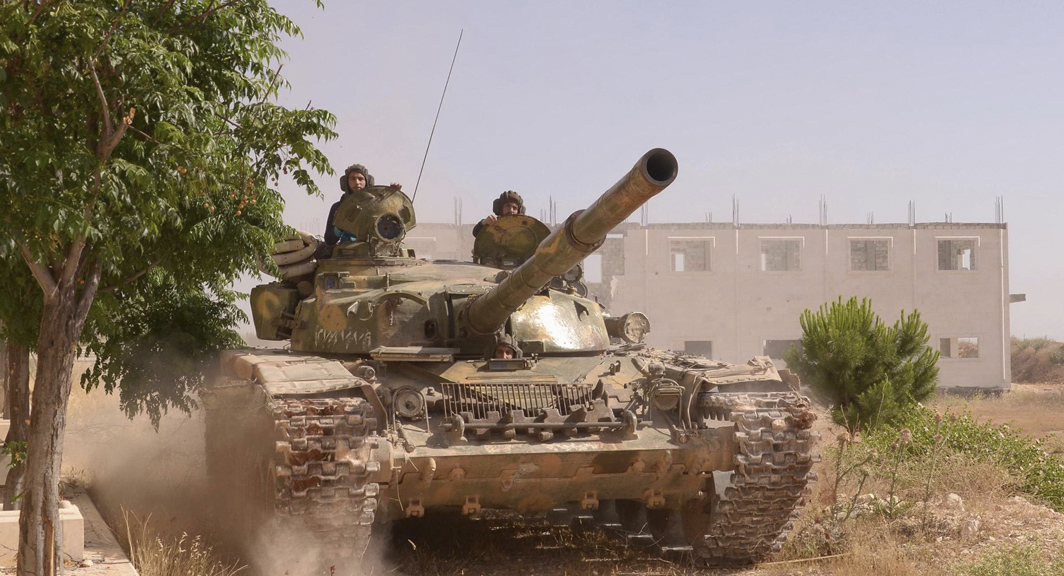Syria civil war: fighters killed in Lebanon border clash
Several fighters die in an overnight clash between Hezbollah fighters and Syrian rebel forces in Lebanon’s eastern border region with Syria.

Lebanese security sources said 15 rebels were killed in the fighting east of the Bekaa Valley town of Baalbek, but the exact toll would not be clear until bodies could be retrieved from the remote and rugged border area. One Hezbollah fighter also died, he said.
Syria’s two-year-old conflict has increasingly sucked in its smaller neighbour, with deadly fighting shaking the northern Lebanese city of Tripoli and rockets hitting the Bekaa Valley and southern Beirut.
Guerrillas from Shi’ite Muslim Hezbollah, which supports the Iranian-backed President Bashar al-Assad, are fighting alongside his army to drive rebels from the Syrian border town of Qusair, while Lebanese Sunni Muslim fighters have joined the anti-Assad revolt.
Ambushed
The latest fighting took place near Ain el-Jaouze in a finger of Lebanese territory which extends into Syria. The sources said the rebels may have been ambushed as they set up rockets to fire into Shi’ite areas of the Bekaa Valley.
Rebels have said they will carry out attacks inside Lebanon in response to Hezbollah’s support for Assad’s assault on Qusair, a strategic town for rebel weapons supplies and fighters coming into Syria from Lebanon.
The United Nations said on Saturday that up to 1,500 wounded people might be trapped inside Qusair and warned all sides that they would be held accountable for the suffering of civilians.
But security council diplomats said Russia blocked a council declaration of alarm over the two-week siege of Qusair, arguing that the council had done nothing when the town was first taken over by anti-Assad fighters.
The draft statement also urged forces loyal to Assad and rebels trying to oust him “to do their utmost to avoid civilian casualties and for the Syrian government to exercise its responsibility to protect civilians”.
It appealed to Assad’s government “to allow immediate, full and unimpeded access to impartial humanitarian actors, including U.N. agencies, to reach civilians trapped in al-Qusair”.
Syrian Foreign Minister Walid al-Moualem told UN Secretary General Ban Ki-moon on Sunday that the Red Cross would be allowed into Qusair, but only after military operation shad finished, state TV said.
Deep chasm
Moscow’s move to block the statement highlights the deep chasm between Russia and western nations on how to deal with the war in Syria despite joint efforts by Washington and Moscow to convene a peace conference on Syria.
French Foreign Minister Laurent Fabius suggested that the conference could take place in July. He said the Syrian government and the opposition must attend what he called “the last chance” for a negotiated solution.
Assad has lost control of large areas of northern and eastern Syria but his forces have been fighting fierce counter-offensives in the south and centre of the country, including Damascus, Deraa and Qusair.
The fighting has strengthened Assad’s hand ahead of the proposed peace talks, which the 47-year-old leader says he supports in principle.
However he has dampened prospects of any transfer of his powers to a transitional government – a central element of efforts to secure a political solution. Assad’s opponents have also yet to commit to the peace talks.
Uprising
The uprising against Assad has killed at least 80,000 people, driven 1.5 million refugees across its borders, and fuelled regional sectarian tensions.
Leading Sunni Muslim cleric Sheikh Youssef al-Qaradawi, based in Qatar which has led regional pressure for Assad’s overthrow, called on Saturday for holy war against the Syrian government after intervention by Hezbollah, whose name in Arabic means the Party of God.
-
Latest news
-
As India goes to the polls in the world’s largest election – what do British-Indians think?6m

-
Tees Valley: Meet the candidates in one of the biggest contests coming up in May’s local elections4m

-
Keir Starmer says public sector reform will be a struggle7m

-
Nicola Sturgeon’s husband Peter Murrell charged with embezzlement of funds from SNP1m

-
Ukraine might finally get $60billion in American weapons and assistance to defend against Russia3m

-




